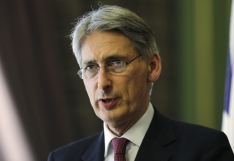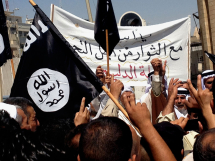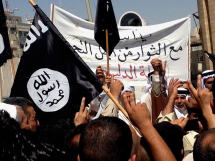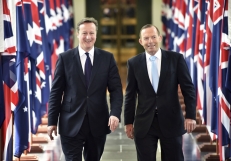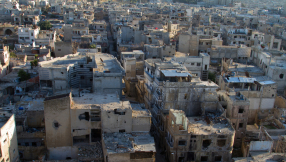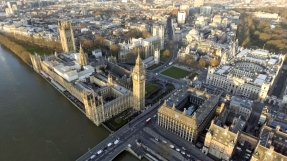
Queen Rania of Jordan has called on the Arab world to reclaim Islam as a religion of peace. Referring to Islamic State extremists, she said: "A minority of irreligious extremists is using social media to rewrite our narrative... hijack our identity and rebrand us."
There are two stories about Islam out there. One is that it's a religion of peace and its adherents only want to live harmoniously with other people. The other is that its fundamental aim is to take over the world, by force if necessary. There is fear, suspicion and confusion. So what are the questions that help us make sense of the different narratives?
People are just people, aren't they?
Yes. In other words, once you've labelled them as 'Muslim', you've said something about them, but maybe not very much. I'm a Christian. I'm also white, British, middle-aged and a rather tepid fan of Aston Villa. I live in a pleasant spa town and enjoy country rambles and biographies of eminent Victorians. There's a lot about religious people that the label doesn't explain or express.
How many Muslims are there, anyway?
Islam is huge, though not as big as Christianity. According to Pew Research, 1.6 billion or 23 per cent of the world's population is Muslim. A minority of those are Arabs: more of them live in India and Pakistan than in the whole of the Middle East and North Africa. This means that if you have a clear idea of what a typical Muslim looks like, you are almost certainly wrong.
How far back does it go?
It's not as old as Christianity or Judaism, and nowhere near as old as Hinduism, but it's old (622 AD). 1400 years is quite long enough for vast quantities of literature, devotional writing, scholarly rows and different schools of thought to emerge. Think of how many Christian denominations there are – not just Catholic and Protestant, but almost infinite sub-divisions within Protestantism and lots of different expressions of Catholicism too. Islam is a bit like that, if not quite as extreme.
It sounds very complicated...
You have no idea. In a nutshell: soon after Muhammed's death Islam divided into Sunni and Shia branches. Sunnis are by far the most numerous, but each tends to dominate in particular countries – Sunnis in Egypt, Turkey and Saudi Arabia, for instance, and Shias in Iran. The split was over who should succeed the prophet. Sunnis believed that the heir should be appointed under Arab tribal tradition, whereas Shias believed it should be a descendant of the prophet. For Sunnis the leader was a political governor; Shias by contrast have an imam, a religious figure. The division was sealed in 680 with the death of the Shia claimant, Hussein, at the battle of Karbala – a key event in Shia tradition.
Does this really
matter?
Yes. The different streams fought each other quite a bit, but have also developed in different ways. For instance, Shias view the sayings of Fatima, the daughter of the Prophet, and his cousin Ali (Fatima's husband), as authoritative; Sunnis do not. There is an organised Shia clergy, but none in the Sunni tradition. The most important difference is about the interpretation of the Qur'an. The Sunni look more to the letter of the Qur'an; the Shia look more to its spirit, though both would say that in the original Arabic we are reading the literal words of God. Arguably there is more room for development in the Shia tradition, but there are extremists on both sides.
So, is Islam just one thing?
Is Christianity? The answer is both yes and no. There are different theological streams in both Shia and Sunni traditions. They argue about evil, predestination and free will, salvation and the knowledge of God – all familiar questions in Christian theology too. In the case of the Athari, they argue about whether to argue at all. There are also various types of popular devotion, such as the cults of saints, and the mystical Sufi tradition. Different schools of law have arisen from different ways of reading the Qur'an and the Sunnah (prophetic traditions). These came out of different reforming movements or political situations. Again, it's important, with different approaches to crime and punishment, for instance.
Questions of truth aside, is it all good and helpful?
No – though on the Christian side, of course, no one should forget the Spanish Inquisition. One example is arguably the Salafi movement which seeks to return Islam to the primitive virtues of its earliest times. In its Wahhabi form it is fundamentalist and uncompromising, seeing Western innovations like democracy as dangerously un-Islamic. Wahhabism is a 'dominant minority' in Saudi Arabia, whose ruling House of Saud formed an alliance with its founder. Its adherents reject religious authorities from later than the first three generations of Muslims; consequently pronouncements from modern scholars and teachers have little influence on them. Islamic State has been described as "untamed Wahhabism".
Ah, yes, Islamic State. What's driving them?
Islamic State is a Sunni extremist group which wants to return Islam to its original pure form. It rejects later 'innovations' and secular laws. In the captured city of Mosul in Iraq it has imposed a school curriculum which bans the teaching of art, music, national history, literature and Christianity. It has banned music and songs, alcohol and tobacco. Women are only allowed to go outside the house if absolutely necessary and have to be veiled. Its goal is to expand its territory throughout the region and beyond. It represents an extreme form of 'political Islam', which seeks to reshape society in an Islamic way. While terror is obviously an appalling perversion of any religion, there is discussion both within and outside Islam about legitimacy of this as a goal anyway. It has also been argued that political Islam is political Islam, and its goals are the same whatever the methodology. However, as we've seen in the UK – in the comments of former Archbishop of Canterbury Rowan Williams about sharia law, for instance – there's a legitimate argument to be had about how far a Christian country should go in accommodating Muslim principles.
Do I really need to know all this?
Possibly not, but it is very important to realise that Islam is not a monolithic religion. They agree on the fundamentals, like Christians, but apart from that there is a great variety in thought and practice. Trying to generalise about Muslims is no more sensible than trying to generalise about Christians.
Common sense, surely? Well, you would think so. But failure to understand this leads some people to believe that Islam is just naturally going to be at odds with other cultures, as Samuel Huntingdon argued in his notorious Clash of Civilizations. Others go even further, like Franklin Graham, who described it as a "wicked" and "evil" religion. So any evidence that it isn't is discounted, or used as evidence that Muslims are playing a deceitful double game – Protestants (and indeed some Catholics) used to say the same about Jesuits. For instance the Common Word initiative from Muslim scholars in 2007 aimed at starting dialogue was dismissed in some quarters as a Trojan Horse; so was a recent Muslim prayer service in Washington. That is not to deny that some Muslims might have ulterior motives in dialogue with Christians, but starting from a position of trust seems like a good thing.
But a lot of Muslims really do seem to believe in violence, don't they?
As a proportion of their total numbers, no – but they do immense and tragic harm, to Christians and other Muslims. So the real question is, why a Muslim in one part of the world would be horrified by Islamic State and someone else would be all for it. The answers include: a response to oppression and powerlessness, the breakdown of law and order, and bad theology – most scholars and teachers reject Islamic State as an abomination. Other cultural factors include the extreme introversion of some communities – in Pakistan, for instance – authoritarian social structures, and deeply embedded historical narratives. Most Muslim-majority countries can point to a history of oppression, colonialism and betrayal by Western powers which we have largely forgotten, while they have definitely not. A sense of being out of place can lead young Muslims in majority Christian countries to set their Islamic identity over against their national loyalities, which leads some to head off to Iraq or Syria to fight for Islamic State. But saying that people do terrible things because they are Muslims is just not true.
So, is Islam a religion of peace?
That isn't quite the right question, because very few religions – including Christianity – are, in an entirely unqualified way. You can go to the Muslim sacred texts and find exhortations to peace, love, tolerance and understanding. You can also find justifications for religious warfare, the subjugation of women, amputations, stonings and goodness knows what. However, most Muslim scholars and teachers in most countries remain true to their faith and their scriptures without advocating any of these things. As ever, there is a complex relationship between scriptures, the historic tradition and contemporary culture. So the point is that the answers to Islam's problems already lie within Islam; dismissing a whole world faith because of the actions of a minority of extremists is not very helpful.
As Queen Rania said: "For the sake of each one of us... for Islam and the Arab world... for the future of our young people, we must create a new narrative and broadcast it to the world. Because if we don't decide what our identity is and what our legacy will be, the extremists will do it for us."
Rev Mark Woods is a Baptist minister and contributing editor at Christian Today. Follow him on Twitter.










